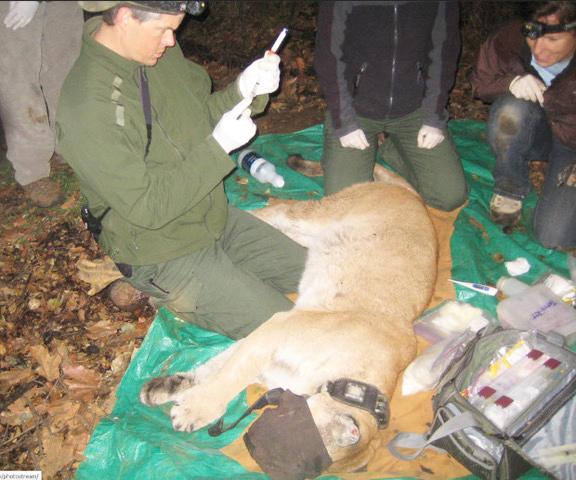Jeff Sikich Presents Mountain Lion Research
National Park Service biologist, Jeff Sikich examines a tranquilized mountain lion. Photo courtesy of National Park Service
Source:

Copyright ©2020. All Rights Reserved. M'Online is the digital version of the Messenger Mountain News, both published and produced by Messenger Media Group, Inc. Website byDesign Like It Matters